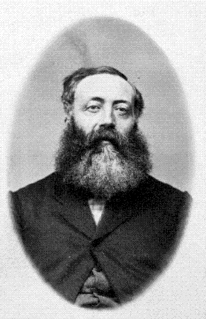| Alexander Rocke Robertson | |
|---|---|
Robertson pictured c. 1870s | |
| Member of the Legislative Assembly of British Columbia for Esquimalt | |
| In office 1871–1875 | |
| Personal details | |
| Born | May 12, 1841 Chatham, Canada West |
| Died | December 1, 1881 (aged 40) Victoria, British Columbia |
Alexander Rocke Robertson (May 12, 1841 – December 1, 1881) was a Canadian lawyer, judge, and politician.

Canadians are people identified with the country of Canada. This connection may be residential, legal, historical or cultural. For most Canadians, several of these connections exist and are collectively the source of their being Canadian.
Born in Chatham, Canada West, the second son of Alexander Rocke Robertson and Effie Eberts, Robertson attended the Caradoc Academy and then studied law in Chatham. He was called to the bar in 1863 and practiced law in Windsor. He moved to British Columbia in 1864 arriving in Victoria, British Columbia. He found work as an editor for the newspaper Daily Chronicle since he was unable to practice as a lawyer since only British trained lawyers were allowed to practice. In 1864, the rules were changed and Robertson was admitted to the bar of Vancouver Island. He was a founding member of the Law Society of British Columbia in 1869.

Windsor is a city in Ontario and the southernmost city in Canada. It is on the southern shore of the Detroit River, due south and directly across the river from Detroit, Michigan. Windsor is a major contributor to Canada's automotive industry and has a storied history and a diverse culture. Known as the "Automotive Capital of Canada", Windsor's industrial and manufacturing heritage is responsible for how the city has developed through the years.

British Columbia is the westernmost province of Canada, located between the Pacific Ocean and the Rocky Mountains. With an estimated population of 5.016 million as of 2018, it is Canada's third-most populous province.

Victoria is the capital city of the Canadian province of British Columbia, located on the southern tip of Vancouver Island off Canada's Pacific coast. The city has a population of 85,792, while the metropolitan area of Greater Victoria has a population of 367,770, making it the 15th most populous Canadian metropolitan area. Victoria is the 7th most densely populated city in Canada with 4,405.8 people per square kilometre, which is a greater population density than Toronto.
In 1870, he served one term as mayor of Victoria. He was elected to the Legislative Assembly of British Columbia in 1871 for the electoral district of Esquimalt. He was appointed provincial secretary in the cabinet of John Foster McCreight. He did not run in 1875 returning to his law practice.

The Legislative Assembly of British Columbia is one of two components of the Parliament of British Columbia, while the other is Elizabeth II, Queen of Canada, represented by the Lieutenant Governor of British Columbia.
Esquimalt was a provincial electoral district in the province of British Columbia, Canada. It was one of the province's first twelve ridings upon its entry into Confederation. It was originally a two-member riding. Its successor riding today is Esquimalt-Metchosin.
In 1880, he was appointed to the Supreme Court of British Columbia. He injured his knee while swimming in the summer of 1881 and had his leg amputated in November 1881. He died soon after in 1881.

The Supreme Court of British Columbia (BCSC) is the superior trial court for the province of British Columbia, Canada. The BCSC hears civil and criminal law cases as well as appeals from the Provincial Court of British Columbia. There are 90 judicial positions on the BCSC bench in addition to supernumary judges, making for a grant total of 108 judges. There are also 13 Supreme Court masters who hear and dispose of a wide variety of applications in chambers.













